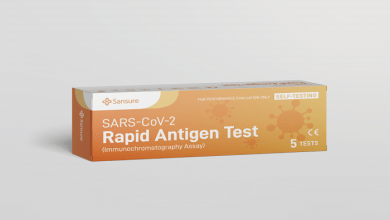
What benefits does a vegan diet provide for your health?
According to a 2016 survey, the number of vegans surged by an astounding 360% over the preceding ten years. Veganism is growing.
Due to increased awareness of the associations between eating animals and sickness last year, plant-based diets became more and more popular throughout the world. Since 2020, the number of vegans in the UK has risen by 40%, to an estimated 1.5 million people.
Let’s examine the benefits of going vegan in light of the growing interest in veganism and the general interest in what a vegan diet entails. Read the benefits of a vegan diet below in this article;
What precisely is a vegan diet?
All animal products, such as meat, eggs, milk, and honey, are prohibited in a vegan diet. Although it is fully made of plant-based ingredients, many non-vegan items have plant-based alternatives.
For some, becoming a vegan is more than just a diet. In this case, consumers should steer clear of products that have been tested on animals, refrain from wearing real fur or leather, and consider the impact an item will have on animals before making a purchase.
A gut health expert, claims that “plant-based vegans,” who may not always practice veganism in other facets of their lives, commonly consume the following foods:
- Fruits.
- Vegetables.
- Whole grains of grain.
- Nuts and seeds.
- Legumes.
- Pulses.
- Spices.
- Herbs.
There are several reasons why people become vegans.
A doctor claims that there are numerous reasons why people switch to a plant-based diet or become vegans. Most people have a variety of dietary objectives and lifestyle motivations.
Ethical
Many people become vegans due to the abhorrent conditions in which animals are kept in factory farms, according to him.
Vegans believe that the production of animal products results in animals suffering or dying before their time for ethical reasons. In this situation, a person can decide to lead a wholly vegan lifestyle in an effort to prevent animal suffering at all costs.
Although going vegan has other benefits as well, ethical vegans are primarily motivated by a desire to lessen animal suffering.
For those who think that the way animals are mass-produced is bad for the environment, veganism has advantages.
A doctor claims that the extensive animal agricultural industry has a variety of negative effects on the environment, such as carbon emissions, water pollution, and deforestation. Manure discharge, soil erosion, and water table contamination from factory farming are some of the major global causes of pollution.
Using antibiotics
“When antibiotics are misused in farm animals, the diseases they are meant to treat develop a resistance to them. One of the biggest threats facing the world now is antimicrobial resistance “Doctor Patel concurs.
Health “A vegan diet can bring many crucial benefits, including enhanced heart health and a lower risk of diabetes and cancer, as well as the crucial vitamins and nutrients needed for a long, healthy life,” continues A doctor.
What benefits may one expect from eating a vegan diet?
“Science is unreliable when it comes to the advantages of a plant-based diet for health. It has a positive effect on many aspects of life, from expanding your palate to trying new foods to supporting the more general cause of animal welfare.” based on A doctor.
- Improved gastrointestinal performance
Vegan diets are rich in minerals and fiber, which support intestinal health. A doctor stresses the importance of having a healthy gut for digestion as well as other critical processes including immunity, skin, hair, libido, sleep, and mood.
Animal products, including those present in Crohn’s disease, have been reported to make several inflammatory bowel diseases (IBD) worse. These could also make irritable bowel syndrome worse (IBS). Even though diverse diets can lead to various ailments, the lower sulphur level of plant protein can be reassuring for people who experience digestive issues.
- Reduced risk of cancer.
It has been shown that a plant-based diet reduces the risk of several cancers.
As a vegan substitute for cow’s milk, soy milk has many health advantages, including the fact that it is inherently lactose- and cholesterol-free.
A lower risk of breast cancer has also been linked to soy products. According to research from Shanghai, breast cancer patients who ingest 11 g of soy protein daily can cut their mortality and recurrence risk by 30%.
A vegan diet may reduce the risk of breast cancer because it doesn’t contain dairy. When consumed often, high-fat dairy products have been linked in studies to an increased risk of breast and prostate cancer. One cup of cow’s milk consumed daily by women increased their risk of developing breast cancer by 50%, according to study from the National Cancer Institute, National Institutes of Health, and Global Cancer Research Fund.
Moreover, the carcinogens released by cooked flesh (agents with the capacity to cause cancer in humans). In order to reduce the possibility of these carcinogens interacting with cell DNA and resulting in genetic defects, it is best to stay away from grilled meat.
Thirdly, a plant-based diet is more visually appealing because of fruits and vegetables. Colorants in certain foods contain substances that prevent cancer.
For instance, beta carotene, the pigment responsible for the bright color of sweet potatoes, may aid in the battle against cancer. The incidence of colon, lung, and stomach cancer has been linked to the consumption of broccoli, kale, and cabbage.




